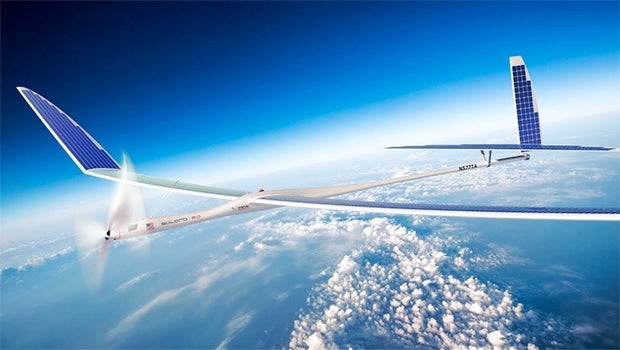Google’s internet-beaming Titan drones ready for 2015 takeoff

Google’s Sundar Pichai, Senior VP at the firm, has revealed that the search engine giant’s Titan drone division will be conducting its first test flight this year.
Titan Aerospace began as an independent drone research company, until Google acquired it in April last year.
Facebook originally examined the drone firm as a potential target for a buy-out, although the social network later acquired a UK-based drone start-up instead.
Titan’s forte was high altitude drones, which Google has been hoping to capitalise on by creating an airborne fleet of internet-beaming fliers.
Pichai, speaking at Mobile World Congress 2015 in Barcelona this morning, likened the drones to a mesh of flying cell towers circling overhead.
Related: What is Google X? See what’s cooking in Google’s secret lab
If you’re getting an immense feeling of déjà vu right now, it’s because the concept is very similar to the existing Project Loon.
Loon is another of Google’s wacky internet brainchildren that wants to achieve much the same goal as the Titan project, save with high-altitude balloons.
Project Loon is much further along however, and is currently undergoing testing in several countries.
Pichai confirmed that Titan is currently about where Project Loon was a couple of years ago.
The Titan team is in the process of building extremely light solar-powered drones that can hover in specific regions.
This means Titan will be able to provide internet to otherwise difficult to reach areas of the earth. That could come in very handy during, for instance, natural disasters.


